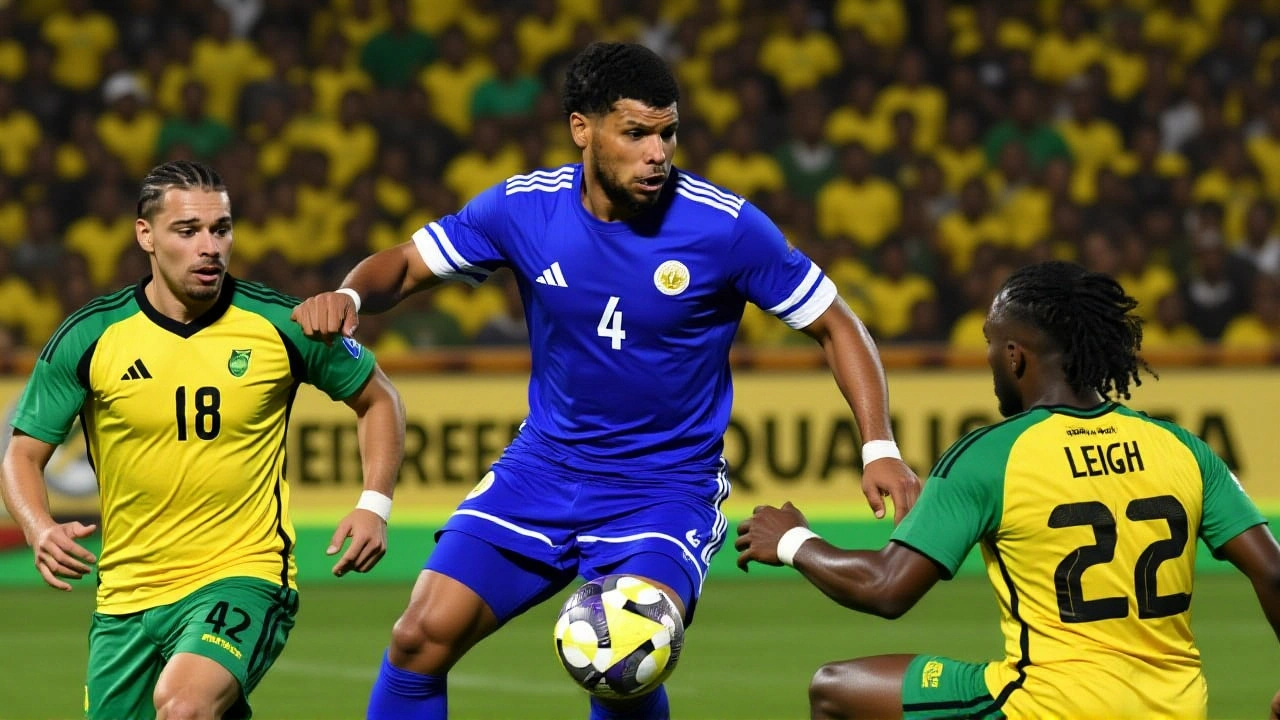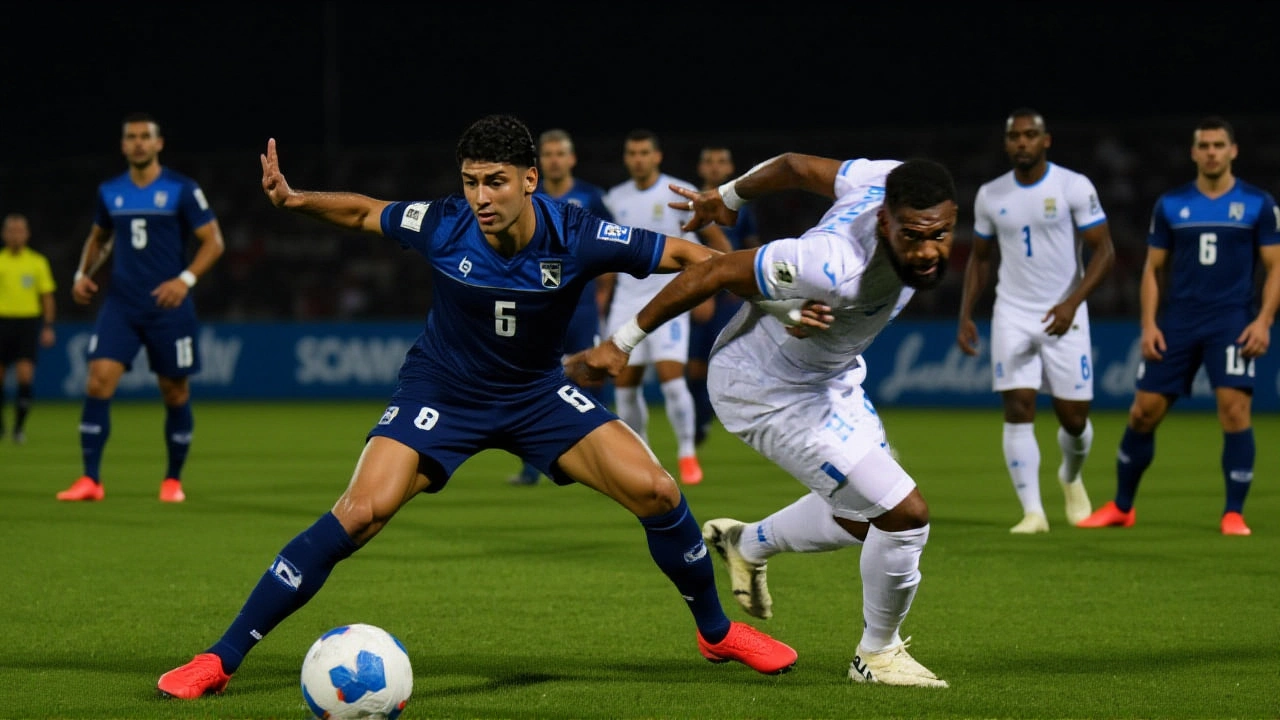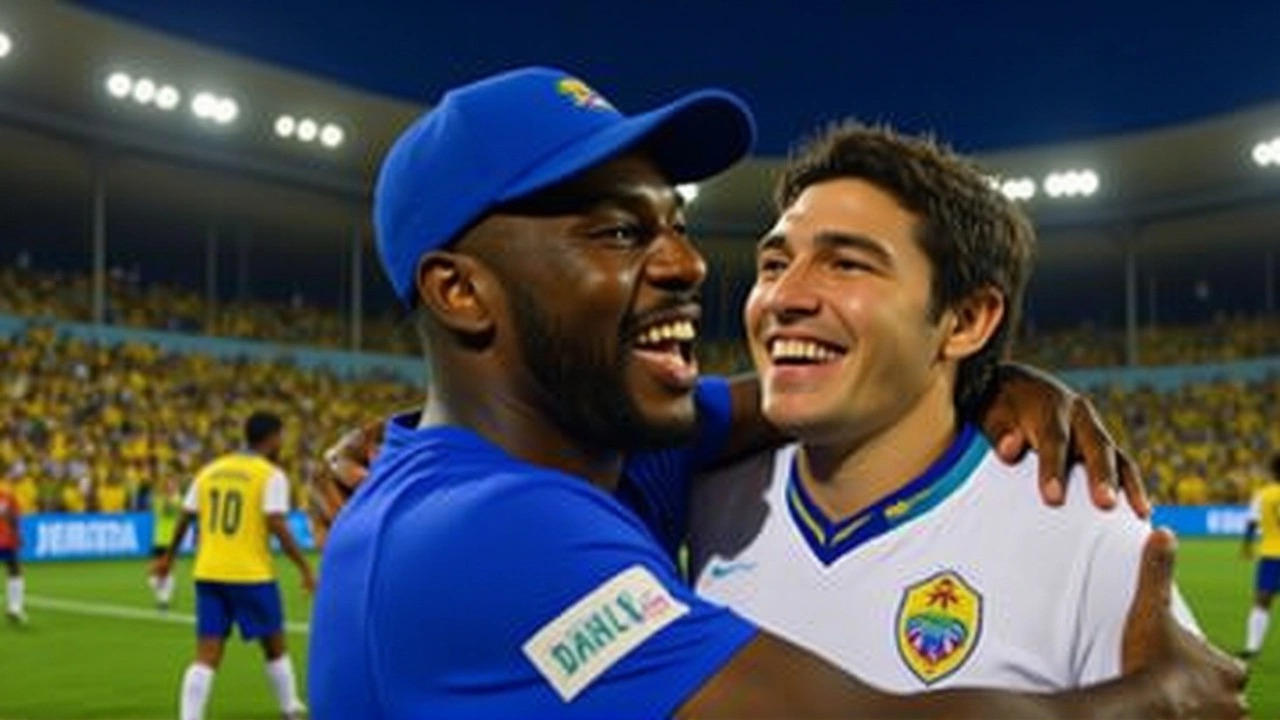Curacao, Population 156,000, Makes World Cup History With Dramatic Qualification

When Curacao secured its first-ever FIFA World Cup berth on June 18, 2024, the entire island held its breath—not because of fireworks or parades, but because 156,000 people were staring at their phones, watching a match halfway across Central America. This wasn’t just a win. It was a miracle stitched together by VAR drama, a last-gasp draw, and pure, unscripted hope.
The Moment That Changed Everything
It was the sixth minute of stoppage time in Kingston, Jamaica. The home crowd was roaring. A wild challenge in the box looked like a clear penalty. The referee pointed to the spot. The stadium erupted. Then came the VAR. Ivan Barton, the Salvadoran official, reviewed the footage. The ball had been cleanly taken by Jeremy Antonisse, Curacao’s substitute striker. No foul. No penalty. The whistle blew. The game ended 1-1. The crowd fell silent. Curacao’s bench exploded.Head coach Dick Advocaat, the 76-year-old Dutch veteran who’s managed the Netherlands, Russia, and South Korea, later admitted he’d stopped breathing. "I didn’t even realize I was holding my breath," he told reporters. "One decision. One second. That’s all it took."
A Qualification Built on Anxiety
Curacao’s path wasn’t paved with dominance. They’d beaten Nicaragua 2-0 at home—but "home" was a tricky word. The match was played in Aruba, not Curacao, due to stadium renovations. Even then, it wasn’t enough. The final spot in the CONCACAF hexagonal depended on another game: Honduras versus El Salvador. So while Curacao’s players celebrated on the pitch in Jamaica, their teammates, staff, and families huddled in a hotel lounge, phones glowing, hearts pounding as the clock ticked down in San Salvador.When the final whistle blew in Honduras—1-1—the room didn’t cheer. It gasped. Then screamed. Curacao had finished fourth in the hexagonal, just ahead of Honduras on goal difference. One goal. One draw. One VAR call. That’s what got them to Qatar 2026.
A Brotherhood of Minnows
Curacao didn’t qualify alone. They joined an elite club of footballing underdogs: Cape Verde, Haiti, and Jordan. Cape Verde, population 600,000, became the second-smallest nation ever to reach the World Cup, behind only Iceland. Their journey was stranger than fiction: a goal from near the halfway line that slipped through the legs of Libya’s goalkeeper. A team where half the players were born abroad. No one plays in the domestic league. Yet they beat Cameroon at home.Haiti, with its turbulent politics and crumbling infrastructure, qualified through grit and raw passion. Jordan, a nation of 11 million, punched above its weight in Asia. And now, Curacao—smaller than many U.S. towns—stands with them.

Why This Matters
This isn’t just feel-good sports theater. It’s a seismic shift in global football. For decades, the World Cup was dominated by giants: Brazil, Germany, Argentina. But the qualification process has become more democratic. Smaller nations now have better coaching, more exposure through streaming, and access to diaspora talent. Curacao’s squad includes players from the Netherlands, Suriname, and even the U.S. lower leagues. They don’t have a professional domestic league. They don’t have state funding. They have belief."The World Cup used to be a dream for the rich," said Luisa Mendez, a football analyst from Santo Domingo. "Now it’s a promise for the persistent."
What’s Next?
Curacao’s World Cup journey is just beginning. They’ll be drawn into a group likely featuring the U.S., Canada, and a South American powerhouse. Their chances of advancing? Slim. But that’s not the point. Their presence alone rewrites the script. And the ripple effect? Already visible. In the Netherlands, youth academies are recruiting more players from the Caribbean. In Curacao, the government announced a $12 million investment in grassroots football. Local schools now offer free soccer clinics every Saturday.Meanwhile, other minnows still dream. New Caledonia, Suriname, and Kosovo are still in playoff contention. North Macedonia could still join them. The door is open. And for the first time, it’s not just the big nations holding the key.

Behind the Scenes: The Human Story
One Curacao player, 22-year-old midfielder Remy de Jong, works part-time at a gas station in Willemstad. He played his first international match at age 17. His mother cried when he got the call-up for the Jamaica game. "She said, ‘You’re not just playing for us. You’re playing for everyone who ever told you you were too small.’"And then there’s the VAR decision. That moment. That one clean tackle by Antonisse. It didn’t just save a point—it saved a legacy. The video clip has been viewed over 8 million times on TikTok. Memes abound: "When your cousin’s friend’s neighbor’s dog gets more attention than your national team… until now."
Frequently Asked Questions
How did Curacao qualify for the World Cup despite having no professional league?
Curacao’s national team relies on players from the Dutch lower leagues, Surinamese clubs, and even semi-pro teams in the U.S. and Canada. With no domestic professional league, the federation focuses on diaspora talent and youth development in the Netherlands, where many Curacaoans have family ties. This strategy, combined with strong coaching under Dick Advocaat, allowed them to field a competitive squad despite limited resources.
Why was the Nicaragua match played in Aruba instead of Curacao?
Curacao’s national stadium, the Ergilio Hato Stadium, underwent major renovations ahead of the qualifiers, making it temporarily unusable. CONCACAF approved the use of Aruba’s Trinidad Stadium as a neutral venue. The move was controversial locally, but the team won 2-0 anyway—proving that home advantage isn’t always about geography.
How does Curacao’s population compare to other World Cup qualifiers?
At 156,000, Curacao is the third-smallest nation ever to qualify for the World Cup, behind only Iceland (370,000) and Cape Verde (600,000). For context, the smallest U.S. state by population, Wyoming, has over 580,000 residents. Curacao’s qualification proves that size doesn’t determine footballing potential—only ambition and organization do.
What role did VAR play in Curacao’s qualification?
VAR’s intervention in the 96th minute against Jamaica was decisive. Without it, Jamaica would have been awarded a penalty, likely winning the match and eliminating Curacao. The decision, made by referee Ivan Barton after reviewing footage, confirmed that substitute Jeremy Antonisse cleanly won the ball. That single call preserved the 1-1 draw, which, combined with Honduras’ result, secured Curacao’s spot in the World Cup.
Are there other small nations still chasing World Cup qualification?
Yes. New Caledonia, Suriname, and Kosovo remain in playoff contention as of late June 2024. New Caledonia, with a population under 300,000, faces Tahiti in a two-legged playoff. Kosovo, though larger than Curacao, is still considered a minnow by European standards and could become the first Balkan micro-nation to qualify. Their journeys are being watched closely by football’s underdogs worldwide.
What impact will this have on football in the Caribbean?
Curacao’s qualification has already triggered a surge in youth participation. The government pledged $12 million for grassroots programs, and Dutch clubs are offering trials to Curacaoan teenagers. More importantly, it’s changed perceptions. For the first time, kids in Willemstad don’t just dream of playing for Ajax or PSV—they dream of playing for Curacao on the world’s biggest stage.